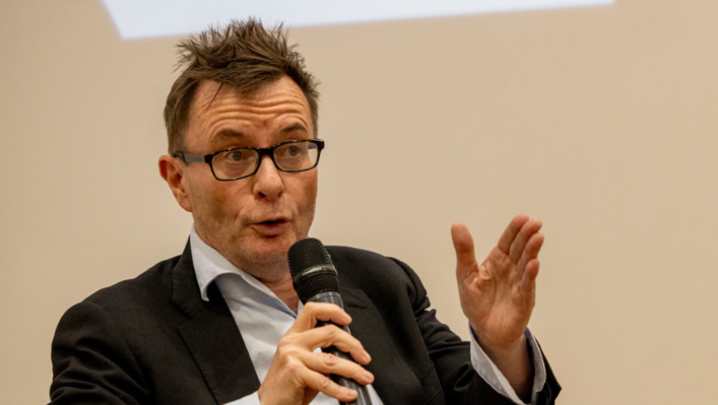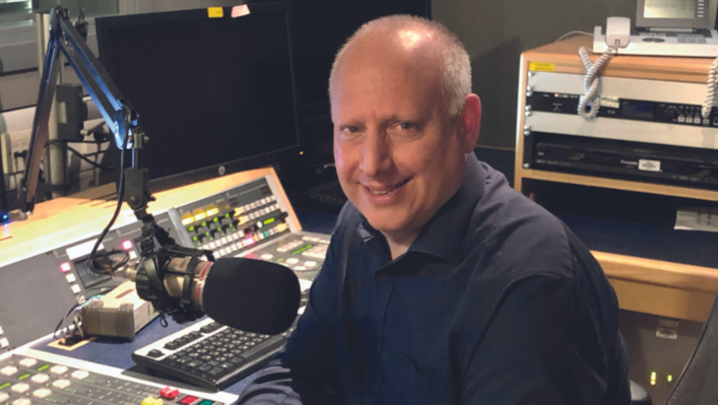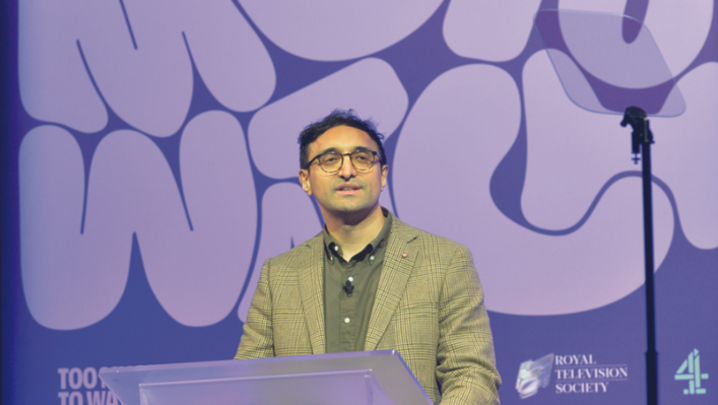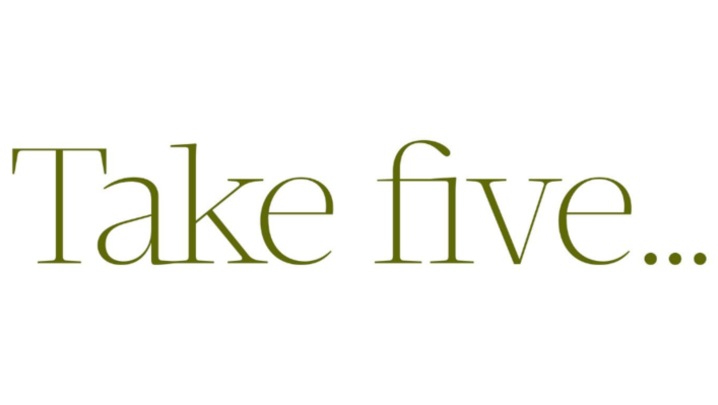Lyse Doucet reflects on how to get through to news avoiders and young TikTokers
BBC Chief International Correspondent Lyse Doucet argued that broadcast news was facing a series of existential threats.
“Our habit of sitting on the sofa to see what’s on the telly is changing fast,” she said. “Our future is, literally, in our hands, in those phones or other devices that so many of us are using to access news – or not – especially a younger generation,” who, she said were turning to TikTok and YouTube.
“News avoidance”, Doucet continued, is the “new catchphrase in our business”, pointing out that [deliberate] avoidance in the UK is among the highest in the world at “a whopping 41%.
“I get it… Sometimes I avoid news, too… Surveys tell us that an older generation finds news too depressing. A younger generation finds it too boring.”
Doucet identified other concerns: “Political polarisation… diminishing faith in institutions, the rise and rise of propaganda, or illiberal and autocratic governments, weaponising social media and artificial intelligence to undermine, if not destroy, democracy and dissent.”
Referencing the three Rs from school – reading, writing and arithmetic – Doucet argued that focusing on news journalism’s own Rs – reach, relevance and reporters – offered hope.
“We need to go… where the young generation is… Take TikTok… it is used by more than one billion people around the world. The BBC as a public broadcaster hesitated… before engaging and then, when it did, recently, the graphs shot up… to sometimes hundreds of millions of views.”
Turning from reach to the subject of relevance, Doucet said: “When people feel the news matters to them, they come back… [Following] Russia’s full-scale invasion of Ukraine… 81% of people in the UK said they were following the news closely.
“International news is not foreign news – it is news that is here and now… Covid 19, the attacks by so-called Islamic State, the climate crisis, migration, cyberattacks; none of this now happens only in countries which seem so far away… they’re our problems, our stories, too.
“[But audiences] don’t want just doom and gloom… they want to see the light in the dark. And, yes, even in the darkest places, we do find that light.”
On reporting, Doucet said: “The best way to challenge propaganda, to confront untruths, is to report: ‘I saw it with my own eyes.’ ‘I heard it with my own ears.’
“Artificial intelligence, the best search engines, can’t convey what fear tastes like when you are in a war zone, they don’t do empathy, they can’t sniff out a story or a scoop. They can’t feel the bottomless grief when you’re in the midst of an earthquake or an attack.”
She praised the work of the new BBC Verify unit, which combats disinformation by harnessing, among other things, open-source intelligence and satellite imagery.
“There is a sense that it’s not enough anymore just to report; audiences want to know how [we] knew that or got to that conclusion,” said Doucet. “We have the best of what technology offers with the best of what humans have always offered – old fashioned, face-to-face journalism in the field, in the heat and dust, and in the cold and fear.”
Q&A
John Ryley: What still keeps you motivated?
It really matters… I’ve always seen my job as a foreign correspondent as… about narrowing the gaps between ‘them and us’, between ‘you and I’.
Going to one disaster after another over the years, I’ve come to understand that when you drill down into the story, no matter how complex and consequential [it] is, it’s a story about mothers and fathers, children, families, societies, streets and people’s hopes and dreams – not so different [to us].
John Ryley: Is it hard to get to the truth now?
People’s views are very stubborn… We need a diversity of opinions, but we don’t need a diversity of facts.
Lyse Doucet delivered this speech as part of the Steve Hewlett Memorial Lecture 2023, alongside Steve Rosenberg and John Ryley.







